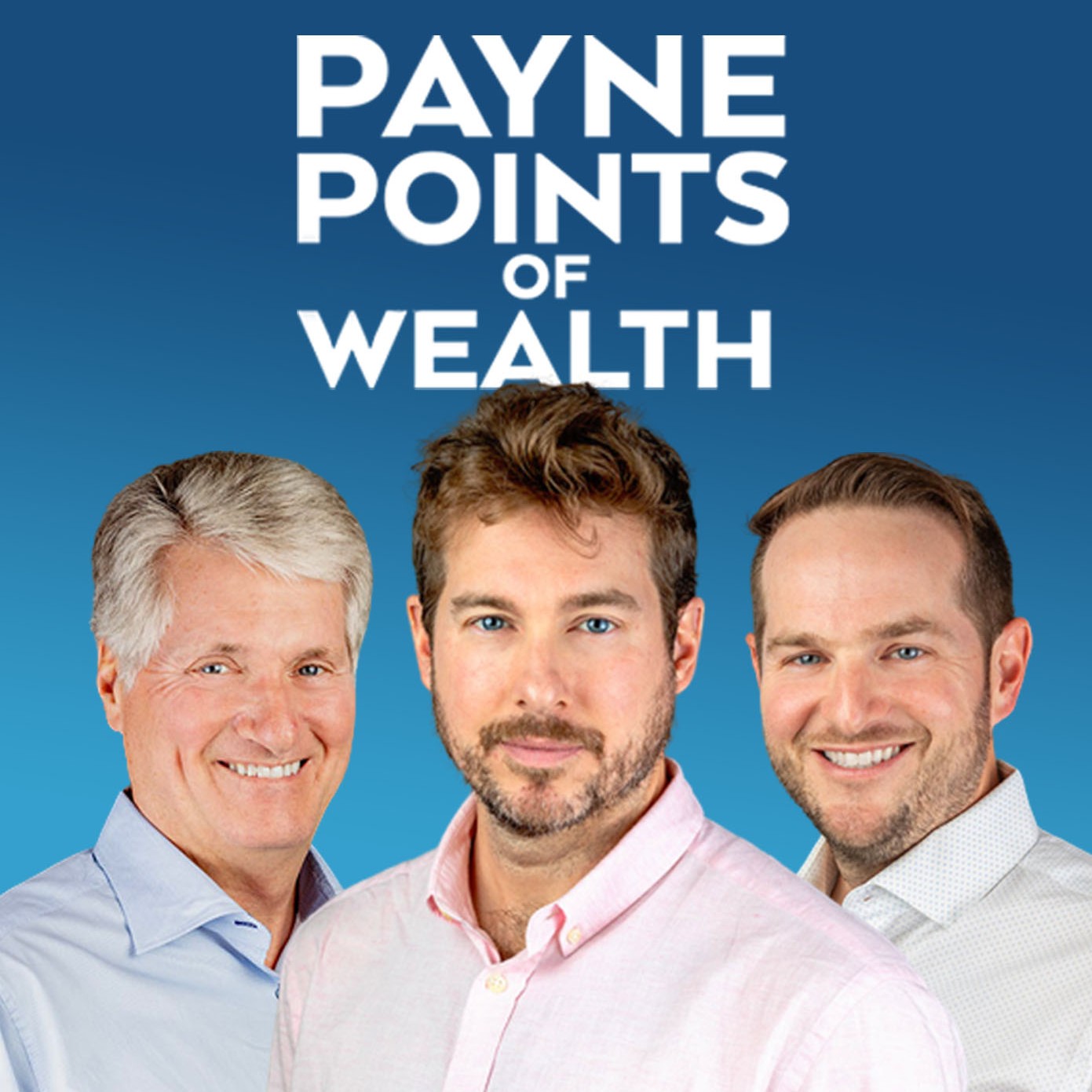
Welcome to the Payne Points of Wealth: The podcast that addresses all the pain points that come with creating your wealth, growing your wealth, and sustaining your wealth. Hosted by the Family Wealth Experts of Payne Capital Management, Bob, Ryan & Chris Payne. On a weekly basis, they deliver timely strategies and solutions for the pain points that come with building, preserving and managing your wealth.
Episodes

Wednesday Oct 20, 2021
From Oh No to FOMO, Ep #56
Wednesday Oct 20, 2021
Wednesday Oct 20, 2021
What's up! It's episode 56 of Payne Points of Wealth and earning season is upon us. For all intents and purposes, it should be a blowout again this quarter, company's profits should be through the roof. We have the banks reporting this week so far, JP Morgan's reported, BlackRock blew out the estimates. These are all good omens, but funny enough, investors are extremely bearish right now with plenty of cash on the sidelines, waiting for a correction. We're gonna address that today. We're gonna tell you what you should be doing with your money. How to play the next move in the market, how they'll play the rest of the year as inflation continues to kick in. Oil, it's over $80 a barrel! At a seven-year high! Folks. Inflation. Is. Real! It's here. We've been telling you about it. We're gonna talk about that. On the Tipping Point today we're going to talk about maybe you've done a great job saving for your financial independence plan, but what are you missing right now that you need to add into your plan to make sure that you're completely financially free. We're gonna break it down.
You will want to hear this episode if you are interested in...
- Everybody’s worried about…? [1:31]
- Is a melt-up coming? [3:07]
- A great example of how markets work [6:07]
- The Tipping Point [10:14]
- Too much risk is still risky[12:36]
- The ticking tax timebomb [15:56]
- It’s ok to live a little [17:22]
- Hidden Facts of Finance [19:57]
A real-life example of how the markets work
Here's a great example of how markets work. If you look at what we call the rotation trade—when growth stocks suddenly stop leading the market and value stocks pick up—all of a sudden financials, energy, these stocks are doing better. If you go back 12 months, you’d see that's when that transition started to happen. Long before anybody recognized it. Long before any advisors or strategists or economists called it. If you look back at the trailing 12-month numbers, energy is up almost 100% versus growth up just 20%. It's amazing how the markets are able to see these things months to a year ahead of time.
This week on the tipping point: Covering your bases
We've found that a lot of you that come to see us have done such a great job on the savings front. You've done a great job with your budget, you have minimal debt, you've learned to save, and you've built up a nice net worth. What we have found is that you don't always have all your bases covered. So, we thought we would talk about some of the problems you face, even if you're a diligent saver or if you have a sizable net worth at this point, that's getting you closer to that financial independence.
Number one on the list is having too much in cash!
When you're saving money, a lot of us think about saving money in cash. The problem with that is it's getting less than zero. If you think about your savings in terms of super savings, you want that money to work for you. Sitting in cash is like having a lot of employees that you pay, but none of them work. Check out the episode to hear what other bases you should be covering!
This week’s hidden facts of finance
This month the energy department released a study that says as much as 40% of US electricity could be produced by solar in 2035, 45% by 2050, but today solar only provides about 4% of overall energy. That's a gigantic leap, right? Renewables are the way of the future, but they're coming a lot later than everybody thinks.
Today it costs more than a penny to make a penny. According to the US Mint, it costs them roughly 1.70 cents per coin.
Warren Buffet, considered the world's most successful investor, made 99.6% of his 87.5 billion fortune after the age of 52. as much as 72 billion of his wealth came after he turned 65. He started investing at the tenure age of 11 and paid his first taxes at age of 13.
Resources & People Mentioned
See if you qualify for a complimentary financial review from the Paynes
Connect With Ryan, Bob, and Chris
- http://PayneCM.com
- Follow on Twitter
- Follow on Facebook
- Follow on LinkedIn
- Subscribe on YouTube
- Follow on Instagram
Subscribe to Payne Points of Wealth
On Apple Podcasts, On Google Podcasts, On Spotify

No comments yet. Be the first to say something!